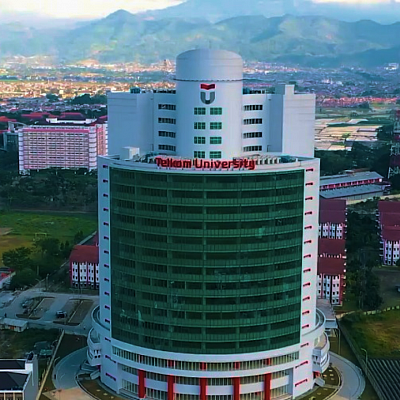Telkom university
Advanced Robotics and Their Impact on Society
We live in an era where machines are learning to walk, talk, think—and even feel. Advanced robotics is no longer confined to factories or science fiction. It’s reshaping how we live, work, and interact with the world around us. These machines are becoming more intelligent, adaptive, and socially integrated, bringing both groundbreaking opportunities and serious challenges to our societies.
From robotic nurses to warehouse drones, from AI-powered personal assistants to self-driving cars, the evolution of robotics is more than a technological shift—it’s a social transformation. What lies ahead is not just about faster robots but about redefining the future of labor, ethics, and even human identity.
The Rise of Intelligent Machines
Advanced robotics represents a fusion of hardware and software: mechanical precision guided by artificial intelligence. These machines can now sense their environment, process information, learn from experience, and make decisions in real-time. Unlike early robots, which were limited to repetitive tasks, modern robots can navigate complex situations, collaborate with humans, and adapt to unpredictable changes.
We see robots helping in hospitals, inspecting dangerous environments, assisting in disaster relief, and enhancing industrial automation. Their intelligence is growing at a pace that mirrors the development of neural networks and deep learning algorithms.
Inside specialized laboratories, teams of engineers and researchers are constantly refining robotic capabilities. These spaces serve as innovation hubs—testing new limbs that mimic human muscles, designing sensors that replicate the human eye, and crafting algorithms that simulate emotional responses. At institutions like Telkom University, labs are playing a key role in advancing human-robot interaction, robotic mobility, and autonomous decision-making.
Revolutionizing the Workforce
One of the most immediate impacts of advanced robotics is being felt in the workforce. Routine, manual, and even some cognitive tasks are being automated. In manufacturing, robots now work side by side with humans, taking on physically demanding roles while humans handle oversight and strategy. In agriculture, autonomous machines can plant, water, and harvest crops with remarkable efficiency. In logistics, warehouse robots are streamlining supply chains faster than ever imagined.
However, this wave of automation also sparks a critical question: what happens to human workers?
While some jobs will be displaced, others will be created. The key lies in adaptation. Workers need to reskill and upskill to remain relevant in robot-assisted industries. Roles will shift from operators to designers, from assemblers to supervisors, from manual labor to creative and strategic thinking. The future belongs to those who can collaborate with machines, not compete against them.
Educational institutions such as Telkom University are crucial in this transition. By updating curricula and fostering interdisciplinary programs in robotics, AI, and data science, universities are preparing students for this evolving reality. Laboratories on campus become not just sites for research, but training grounds for the next generation of tech-savvy innovators.
Fueling Innovation and Entrepreneurship
The rapid rise of robotics has created fertile ground for entrepreneurship. Startups around the world are developing specialized robots—from delivery bots that roam sidewalks to robotic pets that offer emotional companionship. These ventures are often born in university labs, incubators, or hackathons, where bold ideas meet technical execution.
Entrepreneurial minds are exploring how robotics can address societal gaps—aging populations, inaccessible education, climate change, and even mental health. For example, socially assistive robots are helping children with autism improve their communication skills. Drones are delivering medicine to remote areas. Agricultural bots are increasing crop yields while reducing chemical use.
Telkom University, through its tech and innovation ecosystem, encourages students to launch robotics-based startups. With access to state-of-the-art laboratories and mentorship, aspiring entrepreneurs can prototype, test, and scale their ideas—proving that robotics isn’t just about machines; it’s about vision.
Social Implications: The Human Side
The societal impact of robotics extends far beyond economics. These machines are becoming part of our social fabric. Companion robots are being integrated into homes. AI-powered educators are supporting students with personalized lessons. In healthcare, robots can lift patients, monitor vitals, and provide comfort to the elderly.
But the question arises: what does it mean to be human in a world where machines can mimic us?
As robots take on caregiving, educational, and service roles, we must carefully consider ethics, empathy, and trust. Can a robot provide real emotional support? Should robots have rights? Who is responsible if a robot makes a harmful decision?
These questions are at the center of modern robotics research. Social scientists, ethicists, and engineers are working together to create machines that are not only functional but respectful, fair, and humane. The human-robot relationship must be designed with dignity in mind.
Ethical and Regulatory Challenges
With great power comes great responsibility. As robotics becomes embedded in critical systems—transportation, medicine, national defense—societies must develop robust regulations and ethical frameworks. Who owns the data a robot collects? How do we ensure that robotic decisions are transparent and accountable?
In autonomous vehicles, for instance, ethical dilemmas are unavoidable. Should a self-driving car prioritize the life of the passenger or the pedestrian? These are not hypothetical questions—they require clear, human-centered policy.
Academic institutions like Telkom University have a role to play here, not only in building technology but in shaping the ethical conversations around it. Courses in tech ethics, legal frameworks, and social responsibility are as vital as programming and engineering.
The Path Forward: A Human-Machine Partnership
Advanced robotics will not replace us. Rather, it will expand what we are capable of achieving. The goal is not to build a future of domination, but of collaboration. Robots can amplify human creativity, extend our reach, and support us in both routine and extraordinary tasks.
This vision of partnership depends on open dialogue, cross-disciplinary collaboration, and inclusive innovation. It means designing robots that serve all of society—not just the wealthy or the tech-savvy. It means listening to the concerns of workers, caregivers, educators, and everyday people.
And it means continuing to invest in education, laboratories, and entrepreneurship—the three pillars of a future where humans and robots walk side by side.

